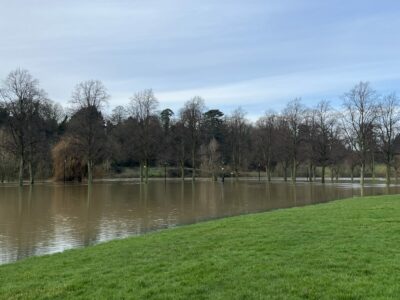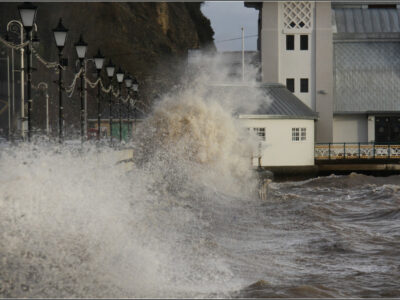Who is responsible for Sustainable Urban Drainage Systems (SuDS)?
What are Sustainable Urban Drainage Systems?
Sustainable Urban Drainage Systems (SuDS) are drainage systems that help to decrease the flow of surface water and increase water storage. Almost all housing developments and other large-scale schemes are now required to include SuDS in their design.
SuDS are expected to be made mandatory in England in 2024 after the Department for Environment, Food and Rural Affairs (DEFRA) said it would implement Schedule 3 of the Flood and Water Management Act 2010 to better control flooding and wastewater discharges.
The main aims of SuDS are to mitigate flooding and to enhance the local environment. As green infrastructure, they imitate natural drainage processes and can include several features, such as:
- Green roofs
- Surface water pumps
- Soakaways
- Swales
- Balancing ponds
- Rainwater harvesting
- Permeable paving
- Attenuation tanks
How are SuDS designed?
When well designed, SuDS are appealing features that enhance biodiversity and attract wildlife. They should blend in with the nearby surroundings and complement any local development.
This means they must be created using competent urban design principles. As every SuDS feature is unique, it requires a bespoke approach to ensure each one blends in with its surroundings seamlessly.
To this end, SuDS consultants and drainage engineers, such as the experts at GeoSmart Information, work with a range of professionals to bring SuDS to life and ensure design is not only aesthetically pleasing but is also robust and works from a geological and environmental perspective.
Whether we work with planning consultants, architects or the end developer, we have the same considerations:
- What is the development?
- Has the local authority provided any policy guidance, or is there local guidance in place?
- How will SuDS be integrated into the development so that it forms a natural area of the scheme?
- Can the development change to accommodate SuDS?
- How can we improve the site’s biodiversity?
- How will SuDS be maintained?
The types of benefits depend on the physical characteristics of each site, but SuDS have four pillars by which they are assessed (these are set out in CIRIA C753 – The SuDS Manual 2015):
- Water quantity – controlling the amount of runoff to support flood risk.
- Water quality – managing the quality of runoff.
- Amenity – creating a more sustainable environment.
- Biodiversity – ensuring a better place for nature.
Safety and responsibility
SuDS are subject to a range of national standards. Local authorities, SuDS consultants and developers are all required to follow these regulations to ensure all systems are safe, effective and are beneficial to the environment in which they sit.
There are several guidance documents that everyone involved must be mindful of when considering SuDS, including:
- The National Flood and Coastal Erosion Risk Management Strategy for England
- The Flood and Water Management Act 2010
- The Construction, Design and Management Regulations 2015
- The National Planning Policy Framework (NPPF).
It is always best to consider SuDS at the earliest stage of any development, rather than consider it later. This more strategic approach is more cost effective and enables the consultant to suggest a system that maximises the efficiencies of the site and enables better integration.
Who is responsible for maintaining SuDS?
The landowner is the default party responsible for SuDS on its land over the lifetime of a development unless the systems are adopted.
If an organisation adopts the SuDS, it agrees to take responsibility for their maintenance and management – this can be a local authority, water company or private organisation.
When SuDS are adopted, it is standard for the freehold to remain with the landowner, but the adopter has the right to access and maintain the system.
GeoSmart Information
We provide three tiers of SuDS report: SuDSmart, SuDSmart Plus and SuDSmart Pro. We can also produce drainage design drawings for your development.
You can contact us today to speak to one of our expert team.



